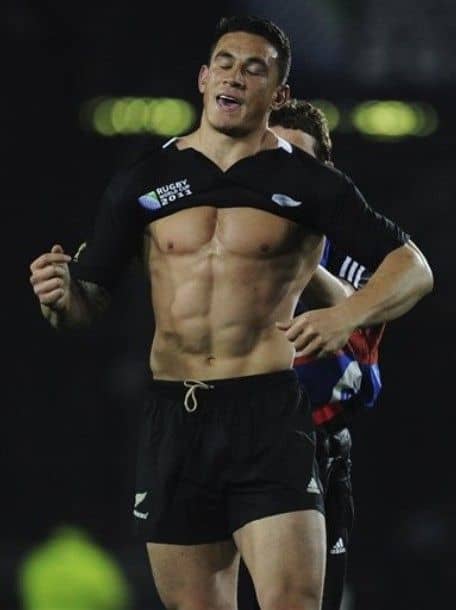
Rugby is a running intensive sport with players running on average over 6km per game. Rugby requires a lot of sprinting with players sprinting 20 times a match, their sprint totals can climb up to 400m. All this running means rugby players need to be very fit.
Any extra weight they are carrying can make it more difficult to handle the rigours of the sport. However, rugby players also need to be big and strong to thrive during the contact phase of the game and certain positions require high body weights due to specialised roles such as scrummaging.
Do you need to lose weight for rugby?
Depending on your current body weight and body fat percentage you may need to gain or lose weight for rugby. The average back has a body fat percentage of 12% to 14% and weighs 93kg while the average forward has a body fat percentage of 14% to 18% and weighs 109kg.
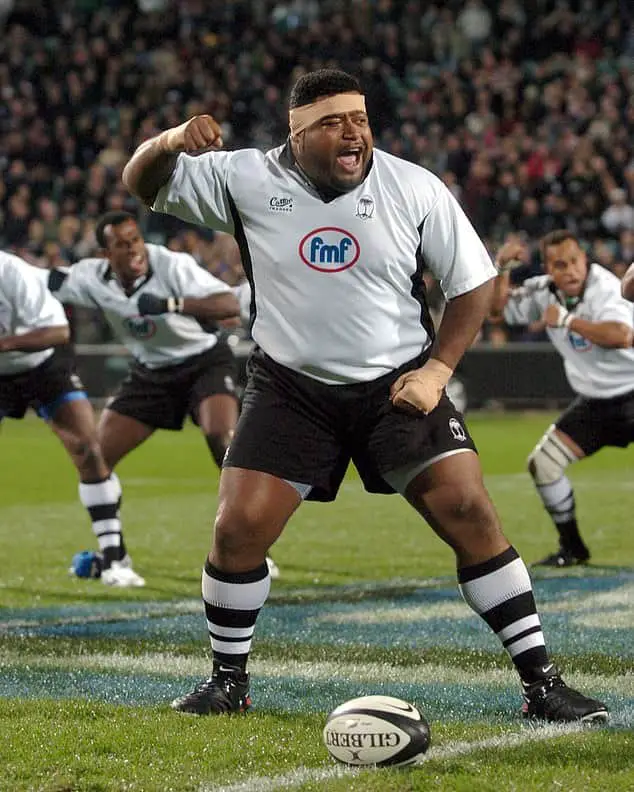
Rugby requires the perfect blend of speed and size. There is no point being the fastest man on the field if you are too small to make tackles or you get destroyed when taking the ball into contact. In contrast if you are a giant with hulk like strength your effectiveness on the rugby field is also limited if you don’t have the speed that allows you to run the ball and get close to attackers to make effective tackles.
Rugby players are often naturally fast or strong with the truly gifted players having a mix of the attributes. Rugby players will often have to make sacrifices to either their strength or speed to build the ideal rugby physique.
For example lets say there is a talented young winger who has the potential to play top tier professional rugby. He is lighting quick with amazing acceleration and an equally impressive step. The only problem is he currently weighs 80kg and he is not going to be able to handle the physicality of professional rugby where the average winger weighs 92kg and there are many monsters weighing over 100kg.
Realistically to compete at that next level he is going to be forced to bulk up and gain at least 10kg. These extra kilos are going to make him a better rugby player but they will negatively affect his speed. There is a reason you don’t see too many 100kg sprinters at the Olympic games.
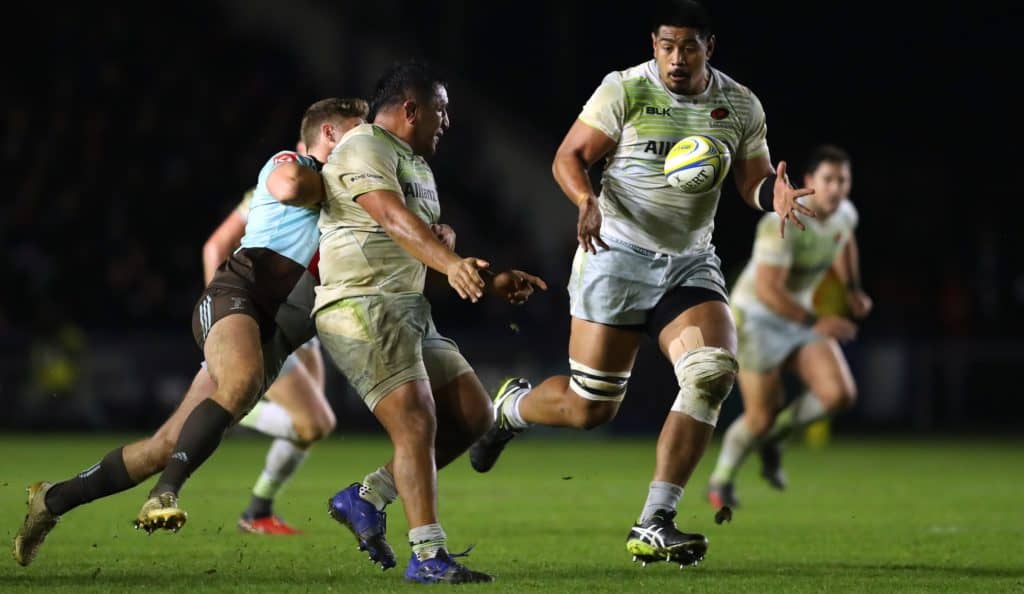
There are many players who face the opposite problem who have been blessed with amazing size and strength but this Goliath like frame is making them too slow on the rugby field. Many Pacific Islander players face this problem.
They are pure mesomorphs and find it so easy to put on weight that their body weight can quickly get out of control and even though they are capable of incredible feats of strength or single moments of brilliance on the rugby field the excess weights prevents them competing for the whole game and their speed takes a nosedive. Will Skelton is a famous example of this. The huge Australian lock is constantly battling to keep his weight down.
To determine whether or not you need to gain or lose weight you need to assess your current body weight and body fat percentage and compare it to rugby standards based on your position.
There are certain rugby positions where aspiring rugby players will almost certainly need to gain weight. If you are a young prop you are probably a long way away from weighing as much as professionals who on average tip the scales at 118kg. Even more impressive is they are able to hit this body weight standing 6ft 1 and at a sub 25% body fat percentage, with truly elite props being able to maintain this weight at a body fat percentage of 18% to 20%.
If you are a young lock you will also probably need to ask for a second or third serving at dinner. The average professional lock weighs 116kg. Apart from eating more food you will probably need to stay in bed all day too because on average they are 6ft 6.

If you have dreams of becoming a professional scrum half or five eighth then in contrast to other positions on the rugby pitch you may need to lose weight. The average scrum half weighs 82kg at a height of 5ft 9 while the average five eighth weighs 88kg at 6ft 0.
These two positions not only are much slender than other rugby players but they have much lower body fat percentages. Both scrum halves and five eighths have body fat percentages in the 10% to 14% range.
So if you haven’t got visible abs and you have dreams of ordering the forwards around the pitch or running backline plays then you may need to lose some weight to attain the low body fat percentage required by elite scrum halves and five eighths.
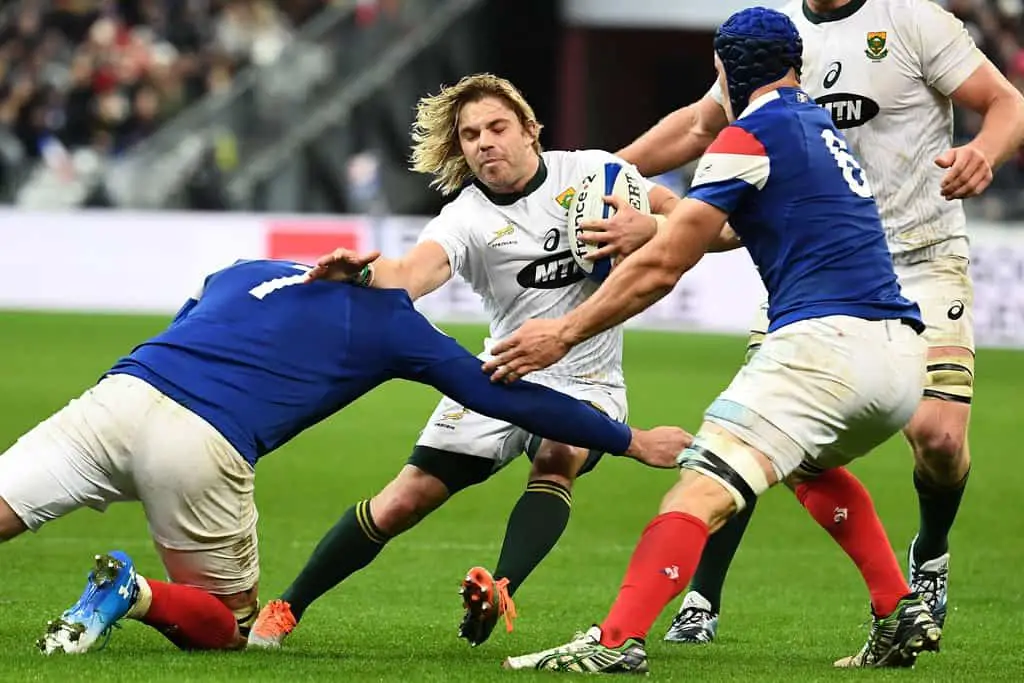
When building your physique to compete on the rugby field you will need to monitor both your strength and speed. You need to keep these two attributes balanced. If you find you are losing too much strength you will have to gain some more weight but if you are finding your speed is dropping too much it is time to put down the fork.
You should keep in mind that it takes professional rugby years and years to develop their physiques. Do not think you are going to train for a few months and wake up with a fully developed rugby physique. The process takes time but if you stay consistent after 4 to 5 years of hard training and dieting you should be able to achieve the weight and body composition standards of professional rugby.
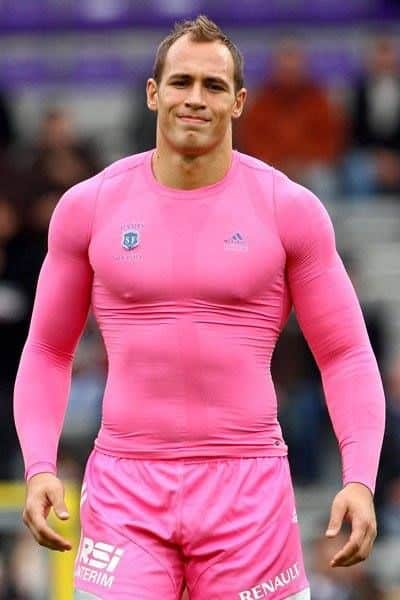
Conclusion
Rugby has been said to be a game for everyone as each position is ideal for different body types and weights. So depending on your rugby position you may need to gain or lose weight.
If you are a prop or lock you will probably need to bulk up as these two positions attract ridiculously big athletes with an average weight of 118kg and 116kg. If you are a scrum half you will probably need to diet down and get shredded as the average scrum half only weighs 82kg and usually has a sub 12% body fat.
